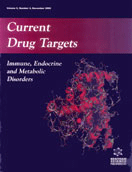Abstract
The activation threshold of various cells in the immune system is tuned by immune inhibitory receptors. The inhibitory Fc receptor, FcγRIIB, is one of the critical elements for keeping immune cells silent. Murine models for allergic responses and autoimmune diseases illustrate the indispensable roles of FcγRIIB in the suppression of these immune disorders. On the contrary, activating-type Fc receptors are crucial for the onset and exacerbation of such diseases. In addition, recent reports have revealed the pivotal roles of Fc receptors in enhancing antigen presentation by dendritic cells, which leads to efficient major histocompatibility complex class I- and class II-restricted T cell activation. In this context, anti-cancer immunopotentiation could be augmented by targeting the tumor antigens to Fc receptors on dendritic cells. This review summarizes recent advances in Fc receptor biomedicine in light of exploiting them as potential therapeutic targets for allergy, autoimmune disease and cancer.
Keywords: immunoglobulin-like receptor, immunosuppression, immunopotentiation, dendritic cell
 1
1














